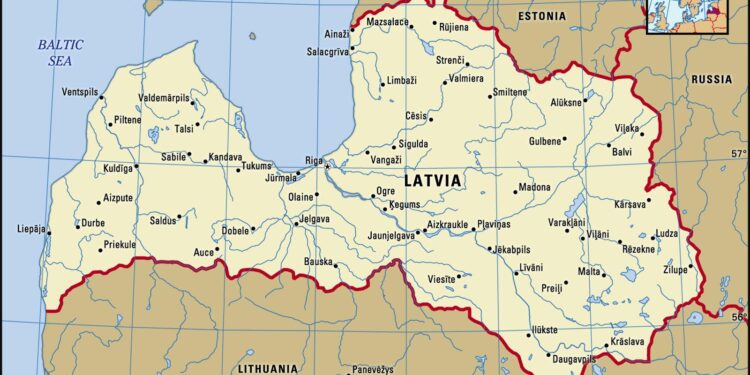Prices in Latvia continued their upward trajectory in August, with inflation reaching 4.1%, according to the latest data released by the Baltic News Network. This persistent rise in consumer prices highlights ongoing economic pressures affecting households and businesses alike, as the country grapples with a complex mix of domestic and global factors contributing to the cost increase. The August figures mark a significant indicator of Latvia’s current economic climate, raising concerns about purchasing power and inflationary trends in the Baltic region.
Rising Consumer Costs Drive Inflation to 4.1 Percent in Latvia
Latvia has witnessed a notable uptick in consumer prices this August, with inflation soaring to 4.1 percent. Analysts attribute this surge primarily to rising costs across everyday essentials such as food, energy, and transportation. Households are feeling the pressure as grocery bills and utility expenses climb, challenging the purchasing power of many Latvians. The government and economic experts are closely monitoring the situation to assess its impact on overall economic stability.
Key contributors to the inflation increase include:
- Energy prices: Higher fuel and electricity costs continue to push monthly expenses upward.
- Food products: Supply chain disruptions have led to noticeable price hikes, particularly in fresh produce and dairy.
- Transportation: Increased costs in public and private transport services affect daily commuters.
| Category | Monthly Price Increase |
|---|---|
| Energy | 5.2% |
| Food | 3.8% |
| Transportation | 4.5% |
Food and Energy Prices Remain Key Contributors to August Inflation Surge
August’s inflation rate of 4.1% reflects ongoing pressures in Latvia’s consumer prices, with food and energy sectors leading the charge. Monthly grocery bills have seen notable increases driven primarily by rising costs of staple items such as bread, dairy, and fresh vegetables. Factors like adverse weather patterns affecting agricultural outputs and increased transportation expenses have compounded these trends, translating to higher supermarket receipts across the country. Consumers are consequently feeling the pinch, with many households adjusting spending habits to cope with the broader price environment.
Energy costs have also experienced a substantial upswing, amplifying inflationary effects throughout the economy. The surge is attributed to both global oil price volatility and regional electricity price adjustments, which impact everything from household heating to industrial production expenses. Below is a breakdown illustrating average price changes for key categories compared to July:
| Category | Monthly Price Increase (%) |
|---|---|
| Fresh Produce | 3.8 |
| Dairy Products | 4.2 |
| Bread and Cereals | 3.5 |
| Electricity | 6.0 |
| Heating Fuel | 5.4 |
Policy Experts Urge Targeted Measures to Mitigate Inflation Impact on Households
Amid persistent inflationary pressures, policy experts emphasize the necessity of targeted economic interventions to shield vulnerable households from the escalating cost of living. While broad monetary policy measures remain central, experts argue that tailored fiscal support could alleviate the direct impact on families facing disproportionate price surges in essential goods and services. Proposed initiatives include expanded subsidies for utilities, focused social assistance programs, and temporary tax reliefs aimed specifically at low- and middle-income earners.
Such targeted approaches are advocated to complement ongoing efforts by the Bank of Latvia and government fiscal authorities. Recognizing the uneven burden across different household groups, experts highlight the importance of data-driven policies. The following table outlines key inflation drivers and suggested mitigation measures:
| Sector | Inflation Impact | Suggested Measure |
|---|---|---|
| Energy | +7.3% | Utility bill subsidies |
| Food | +5.1% | Targeted grocery vouchers |
| Transport | +6.6% | Fuel tax reduction |
In Conclusion
As Latvia faces a sustained rise in inflation, with August figures reaching 4.1%, both consumers and policymakers are bracing for ongoing economic challenges. The continuing increase in prices underscores the need for careful monitoring and responsive measures to mitigate the impact on household budgets and the broader economy. Baltic News Network will continue to follow developments closely, providing updates on how this inflation trend evolves in the coming months.
















